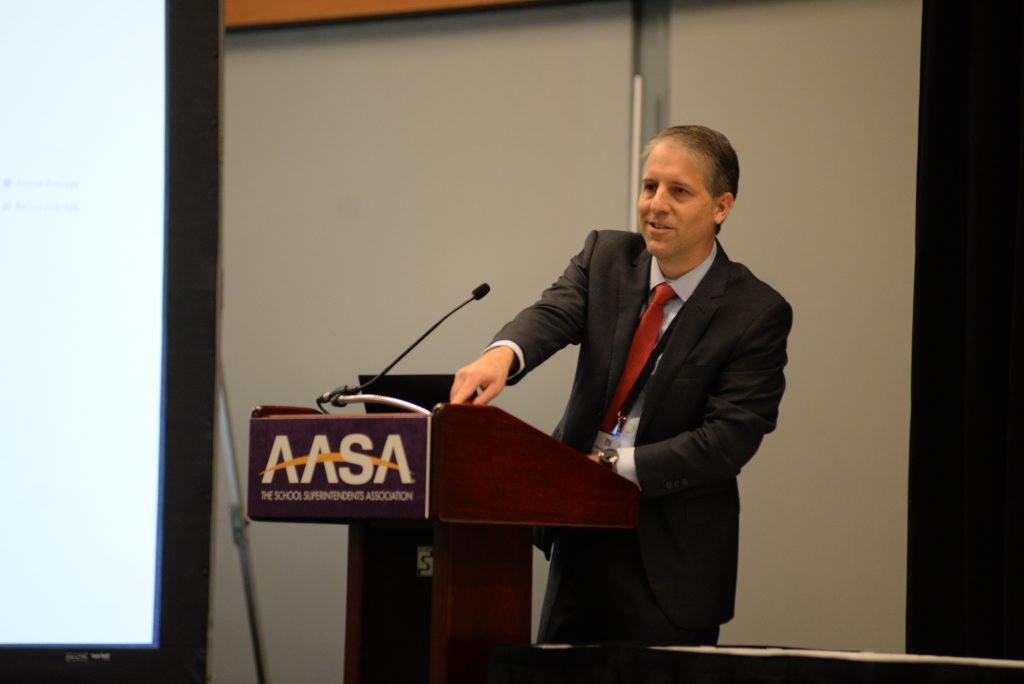The declining commitment to properly fund public education and the well-financed political agenda to expand vouchers and undermine the operations of public schools — threaten not just public education but American democracy itself, according to legal scholar Derek W. Black.
Black, author of Schoolhouse Burning: Public Education and the Assault on American Democracy, delivered the main remarks at Thursday’s AASA Federal Relations Luncheon at the National Conference on Education in Nashville, Tenn.
Citing a rich history of public education documents and decisions, Black drew attention to a consistent message: Public education was considered the backbone of American democracy from the beginning. Farmers were expected to participate in the formation of a new nation, and reading and writing were essential skills for governing.
One little-known document of importance he cited dates back to 1787: “An Ordinance for the Government of the Territory of the United States North West of the River Ohio.” Its significance is that newly created states would be equal to the original 13. To achieve that equality, the new states were created with dedicated land for learning institutions to allow all landowners to receive an education.
“This is a fundamentally important point in history to understand,” Black said. “[The ordinance] reserves land in every major city in the United States for the building of public schools because that is the foundation of the republic.”
In fact, Congress required that for states to reenter the Union following the Civil War, the terms of statehood entailed a republican form of government with public education in their constitution. It understood that part of the failure of the nation was failing to make public education worth dedicating resources to.
“In 1867, the Constitutional Convention of South Carolina … passed the constitutional provision extending public education to all students, regardless of race,” Black said. Schools in 1868 were united under one roof, be they black, white or Native American, one of the first established systems of equality in America.
Today public education is under attack. But Black posed a question: Were divisive topics bringing us closer to a republican form of government of equal citizens?” He clarified that when issues are difficult, it is OK to look someone in the eye and respectfully disagree.
In closing, Black stated that state-elected officials who are pushing vouchers are not dedicated to ensuring the state constitutional responsibility to adequate public education to every student in the state.
“These are fundamental questions of democracy and affect us all, and we have to find ways to build bridges, and push back on the narrow slice of lobbyists who are moving us in the wrong direction.”
(Kat Sturdevant is the advocacy and governance coordinator at AASA.)


